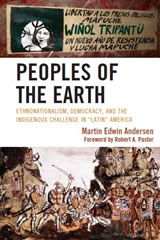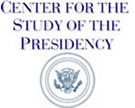In October, a Sao Paulo court ordered the transfer of First Capital Command (PCC) lieutenant Paulo Cezar Souza Nascimento Junior, alias "Paulinho Neblina," to the Special Disciplinary System (RDD), a form of solitary confinement, according to a report by Estado de Sao Paulo. The transfer of other PCC leaders is expected in the coming days, according to a more recent report by Estado.
The move wasn't the first signal that Sao Paulo's government has sought to crack down on the PCC, which dominates much of the state's drug trade and other criminal activities. In a speech given on October 14, Governor Geraldo Alckmin announced the creation of a new task force to identify corrupt police officers working with the group. Alckmin also touted efforts to limit the group's communications; he said cell phone jamming systems would be put in place in 23 high-security prisons across Sao Paulo state. He also expressed support for the transfer of the group's leadership to solitary confinement in RDDs.
The measures follow an apparent embarrassment for the state government, when a request for the preventive detention of 175 alleged PCC members, part of a mass indictment revealed earlier in October, was rejected by judge Thomaz Correa Farqui, according to Estado. Most of the evidence cited in those indictments was obtained through a three-year wiretapping investigation by Sao Paulo's Public Ministry.
University of Toronto post-doctoral fellow Graham Denyer Willis, who recently concluded a multi-year study of Sao Paulo's homicide detectives and organized crime, told InSight Crime the majority of the wiretaps central to the investigation "occurred without due process," contributing to the case's downfall. Following the decision, Correa issued an explanation: prosecutors did not make a sufficient case that the defendants were dangerous PCC members who needed to be jailed.
While Correa might have said the 175 alleged PCC members didn't pose an immediate threat (many of them are already behind bars), there is apparently still reason to fear the group. The Public Ministry's investigation revealed reports the PCC sought to assassinate Alckmin. The group has also threatened to terrorize the 2014 World Cup in June and July if its leadership is transferred to the RDD.
Among the easiest ways the PCC could disrupt the World Cup is by infiltrating the widespread street protests likely to accompany the games. The group may have already made good on their implicit threat to "heat up" street protests. Following the alleged killing on October 27 of a youth in the Jacana neighborhood of Sao Paulo city's North Zone, violent and unrest erupted. Police sources suggested to Folha de Sao Paulo that PCC members were among the protesters, although there is no confirmation the group was involved. Still, the unrest carried a PCC trademark: city buses and trucks were hijacked and set alight in order to block a major highway.
InSight Crime Analysis
The Sao Paulo state government's efforts to crack down on the PCC -- rooting out corrupt cops, jamming cell phones, transferring more leaders to solitary confinement -- may fall short, cause new problems or both.
Attempts to rid the PCC of their police connections will face immediate hurdles. Police in Brazil are split between the military police (Policia Militar or PM, as they are known in Brazil), responsible for patrolling and making arrests, and civil police, who conduct investigations. The two entities are deeply distrustful of one another, which hamstrings serious investigations. Under the current system, according to Denyer Willis, "virtually nothing is accomplished."
Assuming corrupt officers could even be effectively identified, the issue is more complex than simply removing officers from gang payrolls. Some of Sao Paulo's police grew up alongside current PCC members; even in cases where officers aren't working alongside the group, Denyer Willis said some policemen are involved, off duty, in the extortion of PCC drug dealers.
There may also be technical limitations to blocking the use of cell phones in prison, a key communication tactic for the group. Alckmin noted that a pilot program blocked all the traffic in the prison's neighborhood, and that a new technology would be rolled out to screen calls, rather than simply block them. But such measures are likely to be costly and could even be subverted by prisoners themselves. Inmates in Colombia have built their own rudimentary cell phone antennae within prison walls, for example.
If attempts to limit communications or police connections don't work, it appears the authorities are moving to transfer more PCC members to solitary confinement. That measure, though, could set off a new campaign of terror by the group. Gang leaders have a particular aversion to the RDD: Luiz Fernando da Costa, alias "Freddy Seashore," jailed leader of Rio de Janeiro's Red Command (CV) in 2008 described the system as "the product of lunatics and monsters."
It makes sense then that, according to Denyer Willis, the PCC's imperative is looking after its leaders and members behind bars.
"The possibility that they would move many of the leaders to solitary confinement -- RDD -- is exactly the kind of move that has made them violent in the past," he explained. "What they want is for the status quo to remain."
The PCC have already demonstrated they are capable of devastating Sao Paulo if that status quo is disrupted. Bloodshed and chaos erupted in 2006 when multiple PCC leaders were transferred to solitary confinement.
The group's threats to terrorize the World Cup complicate the issue further. At a time when officers are already concerned for their own personal safety, the PCC could wreak havoc by raising the stakes of widespread street protests, which are ongoing and likely to intensify during the World Cup.
Sao Paulo police have had trouble, according to research by Rafael Alcadipani, adapting to the agile and anonymous guerrilla tactics of so-called "black blocs," who outmaneuver cops encumbered by riot gear (and out-organize them via the Internet).
The resulting stress appears to have pushed officers to the limit. During a student protest last month, riot cops in the city used sometimes deadly rubber bullets for the first time since a wave of protests gripped the country during the 2013 Confederations Cup. Such harsh measures are likely to prompt more protests, forcing more officers into riot control duties.
Taking police off patrol duty could have serious consequences. A recent report by Rio de Janeiro's Globo suggests a rise in homicides in the city in recent months is an effect of widespread protests exhausting the city's police.
The PCC could terrorize Sao Paulo during the World Cup, but the Public Ministry's three-year investigation underlined how broad the PCC's reach has expanded. While the group is weak in venue city Rio de Janeiro, World Cup games are also taking place in Curitiba, Belo Horizonte, and other cities where there is evidence the group has a meaningful presence.
In just the latest illustration of their reach, on Halloween reports emerged that PCC members were preparing to assassinate at least five police officers in Mato Grosso do Sul state.
Despite the apparent threat posed by the group, former Sao Paulo secretary for public security Antonio Ferreira Pinto suggested that that Alckmin's tough talk on the PCC is just that: politicking to gain credibility amid ongoing street protests and with the 2014 elections looming. According to Ferreira Pinto, who resigned in 2012 following a deadly blood feud between the police and PCC, threats by the PCC against the governor's life were known to investigators for years, and were widely discredited as inconsequential. Whatever the reason for his aggressive rhetoric, if Alckmin continues to move against the PCC by transferring more its members to solitary confinement, he may risk stirring up a hornet's nest and inciting yet another wave of brutal violence.






